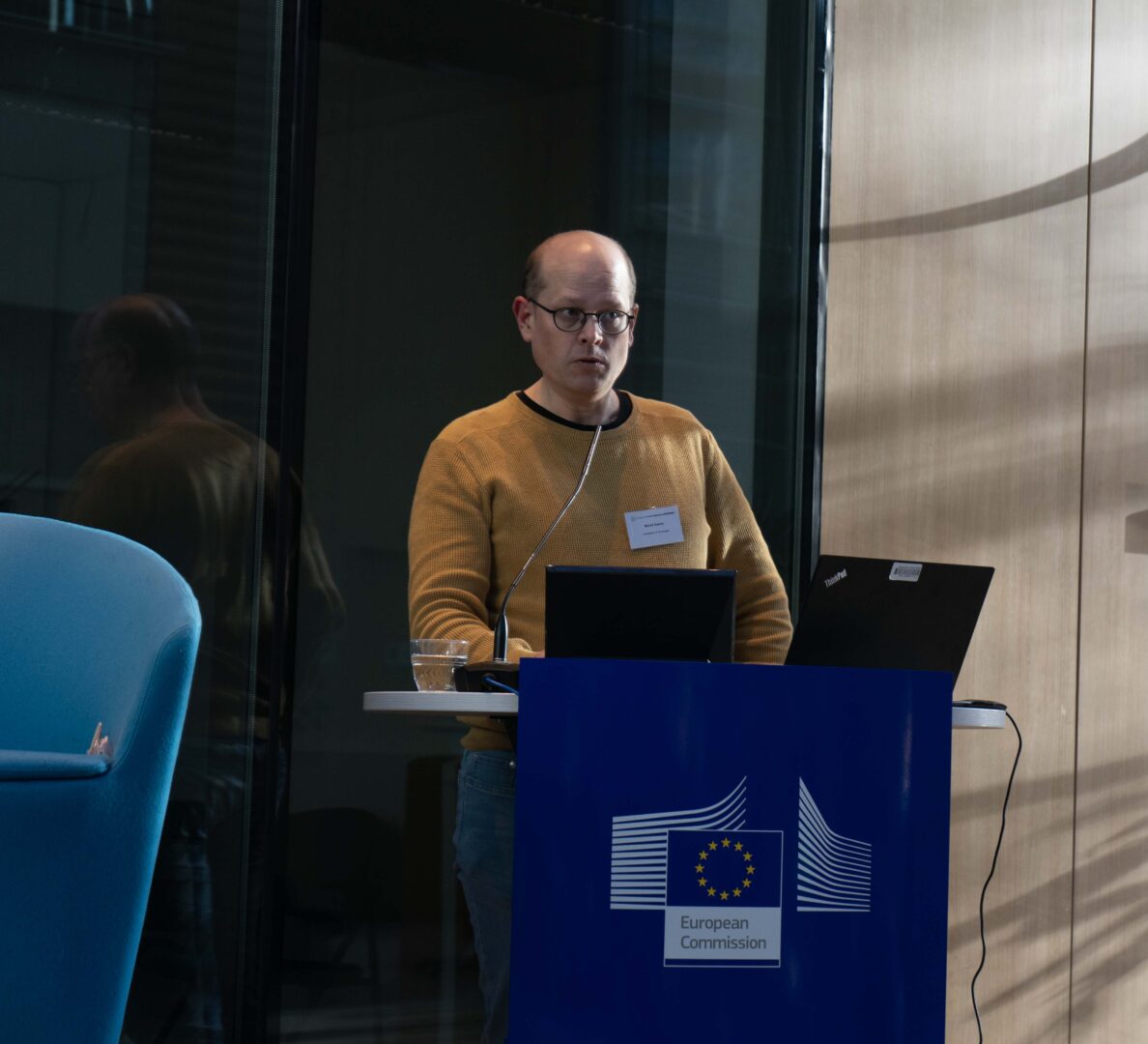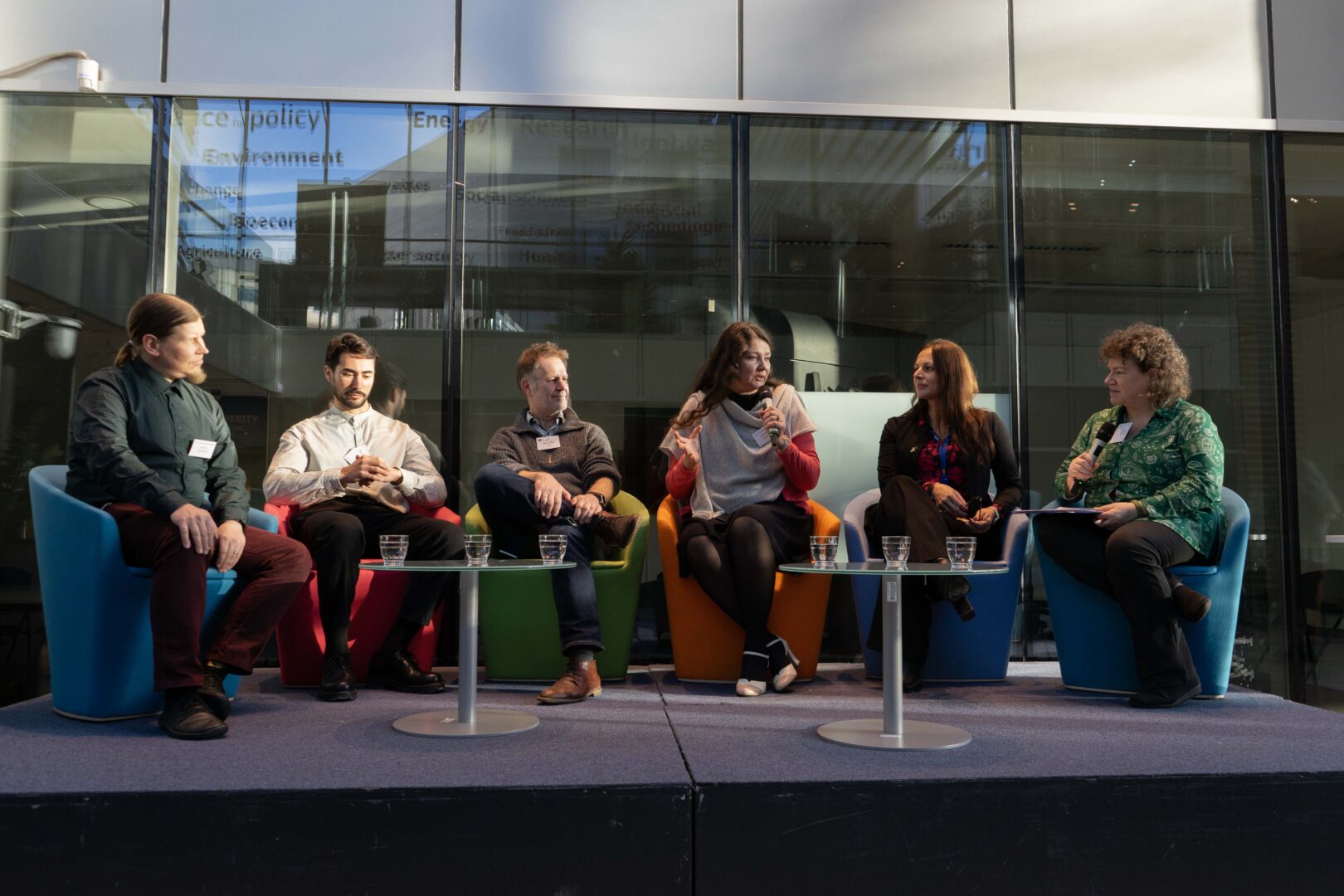Unravelling the exposome – the final EHEN Stakeholder Event
Scientific researchers met EU policy and civil society representatives for the final European Human Exposome Network (EHEN) stakeholder event, “Unravelling the exposome – towards a new systematic understanding of the cause of diseases”, on 28th November 2024.
The event, hosted by the European Commission’s DG Research & Innovation in Brussels, aimed to leverage scientific evidence from the nine EHEN projects to demonstrate the influence of the exposome on the lives of EU citizens, especially on their health, and to showcase the potential of exposome research to drive policy actions.
In an opening address that underlined the importance of scientific evidence from the EHEN network to EU policy making, François Wakenhut, Head of Clean Air and Urban Policy Unit (DG ENV) highlighted that:
“Exposome research will be critical to discovering links to inequalities and considering social fairness in environmental and health policies.”

François Wakenhut, Head of Clean Air and Urban Policy Unit (DG ENV)
Key themes of the meeting were the urban environment, chemical and workplace exposures, air pollution, and management of health data for research.
Exposome and health in the urban environment
On the urban environment, EHEN researchers presented evidence and tools with high potential for wider roll out and for policy action, including:
- European exposome maps and urban simulation tools from EXPANSE using a range of geographical data, including air pollution and climatic data, over a twenty-year period from 2000 to 2020.
- Case studies from HEAP showing the potential of consumer purchase data and wearable sensors to monitor health and provide personalised lifestyle advice.
- Evidence from Equal-Life and HEDIMED on the benefits of urban green spaces for children’s mental health and on the development of immune diseases such as type 1 diabetes and asthma.
At a panel discussion on bridging the gap between science and policy, Roel Vermeulen, Principal Investigator of EXPANSE said:
“Scientists need to work on implementation – working and testing interventions at local levels, learning from each step, neighbourhood by neighbourhood.”
Chemicals, pollution and the occupational environment
During the next session, a presentation from ATHLETE compared the “silent threat of chemical pollution” to the hidden base of an iceberg, since 90% of chemicals in everyday products – which include endocrine disruptors, pesticides, micro-plastics and heavy metals – are released to market with little or no assessment of their health effects.
EPHOR presented a data-driven approach to monitoring workplace exposures that could be used to reduce work-related diseases and pave the way for occupational “exposome passports”. Researchers achieved this by building a comprehensive overview of workplace exposures and workers’ health through environmental sensors on temperatures, noise, and pollution, wearable sensor data on sleep quality, and clinical data on mental health and respiratory diseases.
The REMEDIA project presented a research platform, PolluRisk, which uses a simulation chamber to study health effects of air pollution by exposing preclinical models (mice) to simulated atmospheric pollution.
The panel discussion on everyday exposures focused on the importance of public awareness of health hazards linked to chemicals and air pollution.
“If you can convince the general public that something has an impact on their health and on the health of their children, then this is a way to add political pressure”
said Christian Horemans of the National Federation of Independent Health Insurance Funds (Mutualités Libres), the third biggest group of health insurance funds in Belgium.
The panel acknowledged the challenges facing researchers, who feel they are in a race against time when investigating harmful effects of new chemicals in products already approved for sale. The current European regulatory framework for chemicals, REACH, was felt to be lacking, even though progress is being made on regulating classes of chemicals rather than individual chemical substances. Finally, the panel highlighted the health effects of common chemical mixtures or combinations that people are exposed to via everyday products and in the environment as an area for future research.
Exposome research and health data
The final session of the event focused on health data and legal frameworks. Presentations included the European Health Research Data and Sample Catalogue, jointly developed by the LongITools and ATHLETE projects. The catalogue facilitates data discovery and cross-study comparisons and expands the range of people and environments considered in research studies, leading to more robust scientific conclusions.

Morris Swertz presenting the European Health Research Data and Sample Catalogue on behalf of LongITools and ATHLETE
Other presentations focused on legal frameworks for exposome research in the EU. The EHEN Working Group on Ethics & Law highlighted the need for clarity on the scope of consent to process personal data for research. This issue has increased in relevance with the impending implementation of the European Health Data Space (EHDS). Discussions with policy makers on research and health data considerations, as well as Artificial Intelligence, stressed the need for a balanced legal and ethical framework to govern access to health data, and the importance of trust when conducting research in a data-driven society.
Looking to the future, the final presentation from EXIMIOUS set out the practical, legal and ethical challenges facing researchers in reaching the “next level” of insight that could make personalised preventative medicine a reality. While acknowledging the difficulties ahead, Principal Investigator Peter Hoet underlined the opportunities offered by researching diseases in their early stages, using a combination of environmental, clinical and biological data and methodologies including genomics, epigenomics, and metabolomics.
Through a compelling body of research and discussions with policy makers, the final EHEN stakeholder event delivered a resounding message – that exposome research is key to unravelling the mysteries that still surround the environmental causes and individual trajectories of diseases, and is an indispensable “design tool” for the health and environmental policies of the future.

Inga Prokopenko (middle right) representing LongITools during a panel session